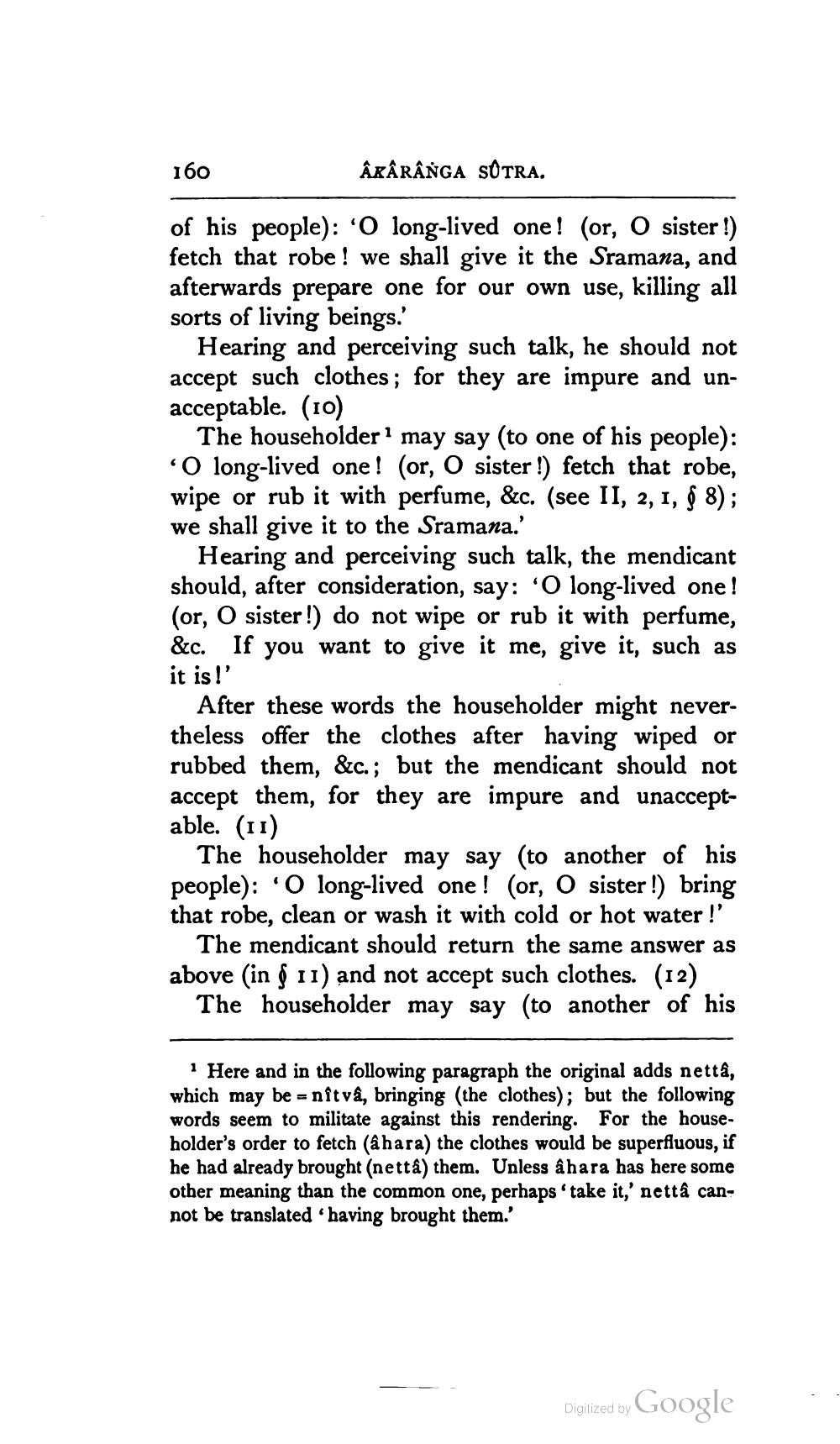________________
160
ÂRÂRÂNGA SOTRA.
of his people): 'O long-lived one! (or, O sister !) fetch that robe! we shall give it the Sramana, and afterwards prepare one for our own use, killing all sorts of living beings.'
Hearing and perceiving such talk, he should not accept such clothes; for they are impure and unacceptable. (10)
The householder' may say (to one of his people): O long-lived one! (or, O sister !) fetch that robe, wipe or rub it with perfume, &c. (see II, 2, 1, § 8); we shall give it to the Sramana.'
Hearing and perceiving such talk, the mendicant should, after consideration, say: 'O long-lived one! (or, O sister!) do not wipe or rub it with perfume, &c. If you want to give it me, give it, such as it is!'
After these words the householder might nevertheless offer the clothes after having wiped or rubbed them, &c.; but the mendicant should not accept them, for they are impure and unacceptable. (11)
The householder may say (to another of his people): O long-lived one! (or, O sister !) bring that robe, clean or wash it with cold or hot water !'
The mendicant should return the same answer as above (in § 11) and not accept such clothes. (12)
The householder may say (to another of his
· Here and in the following paragraph the original adds netta, which may be = nstva, bringing (the clothes); but the following words seem to militate against this rendering. For the householder's order to fetch (@hara) the clothes would be superfluous, if he had already brought (netta) them. Unless â hara has here some other meaning than the common one, perhaps take it,' nettâ cannot be translated having brought them.'
Digitized by Google




